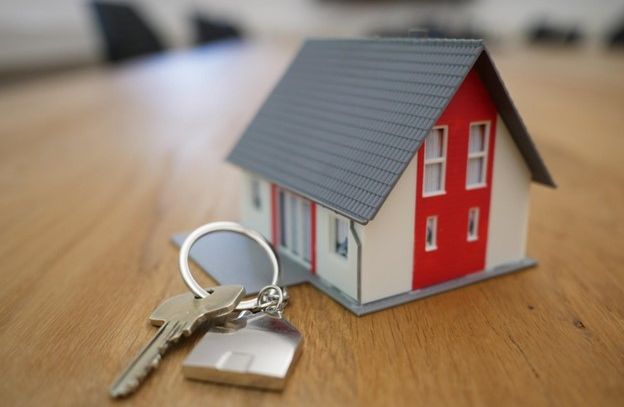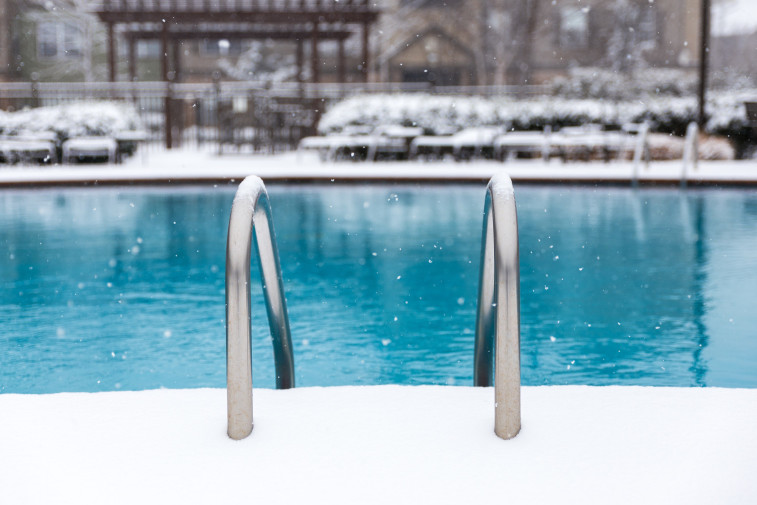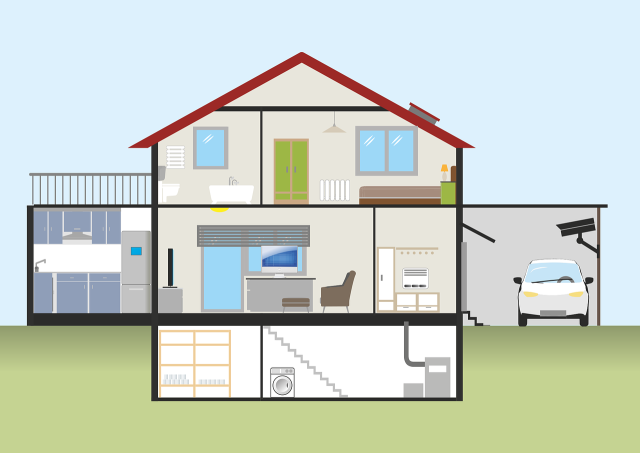Home Warranty > Home Tips For Homeowners
Common Mistakes Homeowners Make When Buying Homeowners Insurance

As a homeowner, you want to protect your most valuable investment. One way to do this is by purchasing homeowners insurance. However, buying the right homeowners insurance can be a daunting task if you are not well-versed in the industry or if you have never bought it before.
Homeowners insurance is crucial, but it is important to avoid costly mistakes when buying it. In this blog post, we will discuss the common mistakes homeowners make when buying homeowners insurance and how you can avoid them.
When it comes to buying homeowners insurance for new construction, there are common mistakes that many homeowners tend to make. This blog highlights these mistakes to help potential buyers avoid them.
Mistake #1: Underinsuring your home
The first and most common mistake that homeowners make when buying home insurance is underinsuring their home. Many do not realize the true cost of rebuilding their home if it were to be destroyed.
This could lead to inadequate coverage and financial loss. Homeowners should thoroughly research the replacement cost of their home and ensure their policy provides enough coverage. While it may seem like buying less coverage could save you money on premiums, the potential cost of underinsuring your home far outweighs the savings. It is crucial to accurately estimate the replacement cost of your home and select a policy that adequately covers it.
Mistake #2: Failing to shop around for the best insurance policy
When it comes to buying homeowners insurance, failing to shop around for the best policy is a common and costly mistake. Homeowners often make the assumption that all insurance policies are the same and only focus on the price.
However, shopping around for different policies can reveal significant differences in coverage, deductibles, and exclusions. By not doing so, homeowners run the risk of being underinsured or paying excessive premiums for minimal coverage. It's important to take the time to compare policies from different insurance companies to ensure that you are getting the best coverage for your specific needs at a reasonable price.
Mistake #3: Making assumptions about home insurance coverage
When buying homeowners insurance, many people make the mistake of assuming that their policy covers everything they need without thoroughly reviewing their coverage. This can lead to significant financial losses if their assumptions turn out to be incorrect.
For instance, some homeowners might assume that their policy covers damages caused by natural disasters, only to find out that they need a separate policy for flood insurance. To avoid making assumptions and ensure comprehensive coverage, homeowners should carefully read their policy terms and conditions, and ask their insurance provider about any coverage gaps or additional riders they need to add to their policy.
Mistake #4: Ignoring insurance terms and conditions
Mistake #4 when buying homeowners insurance is ignoring insurance terms and conditions. Many homeowners make the mistake of only focusing on the price of the policy and not understanding the extent of their coverage. It's important to read and understand the policy terms and conditions to ensure that you're adequately covered for any potential risks. One of the most common mistakes is confusing your home's fair market value with its replacement cost, which can lead to being underinsured.
Poor communication during a home insurance claim can also result in mistakes, making it crucial to understand the terms of your policy. It's important to choose an insurance company based on more than just price, as the level of coverage and customer service can have a significant impact in the long run. Avoiding these mistakes can help ensure that you're properly insured and protected in the event of a claim.
Mistake #5: Selecting the wrong insurance company
Mistake #5 when buying homeowners insurance is selecting the wrong insurance company. Many homeowners make the mistake of choosing their insurance provider based on the lowest premium they can find without considering the reputation and financial stability of the company. It's essential to research the insurer's track record of handling claims promptly and efficiently, as well as their financial ratings.
A financially unstable insurer could leave you in a tough spot if they go bankrupt or fail to pay out your claims. To avoid this mistake, take time to compare quotes from multiple reputable insurance companies and read reviews from previous customers. Don't let the price be the only determining factor when it comes to selecting an insurance company.
Mistake #6: Forgetting to add extra flood coverage
Homeowners living in flood-prone areas should never make the mistake of foregoing flood insurance coverage. As mentioned in ignoring insurance terms and conditions, it's crucial to read and understand the terms and conditions of your policy, especially when it comes to flood coverage.
While it may seem like an unnecessary expense, the cost of repairing or replacing damage caused by floods can be astronomical. Homeowners who forget to add this extra coverage risk losing their homes and valuables in the event of a flood. It's important to note that for the most part, standard home insurance policies do not cover floods, so be sure to add this coverage if you live in a flood-prone area.
Mistake #7: Choosing the lowest premium without considering the policy's coverage limits
Many homeowners make the mistake of selecting the lowest premium without fully considering the policy's coverage limits. While it may seem tempting to opt for the lowest possible premium, doing so can prove disastrous in the long run. It's important to remember that inexpensive policies often come with lower coverage limits. In the event of a major loss, such as a fire or severe storm, the coverage limits may not be enough to cover the total cost of repairs or replacements.
Homeowners should carefully review their policy options and select a policy with sufficient coverage that fits within their budget. Alternatively, homeowners can consider adding on specific riders to their policy to fill coverage gaps. It's always better to be safe than sorry when it comes to protecting your home and assets.
Mistake #8: Not reviewing your policy regularly to ensure adequate coverage
Homeowners often make the mistake of purchasing a policy and never revisiting it, assuming that their coverage needs will remain the same for the life of the policy. However, it is important to review your policy regularly to ensure that you have adequate coverage. This is particularly important if you have made any major changes to your home, such as adding a new room or updating your electrical system.
Without adequate coverage, you may find yourself out-of-pocket if something unexpected happens. Take the time to review your policy annually and speak with your insurance agent if you have any questions or concerns. It is better to be safe than sorry when it comes to protecting your home and belongings.
Conclusion
In conclusion, homeowners must avoid making common mistakes when buying homeowners insurance to ensure they have adequate coverage in case of unforeseeable events. It is important to understand that insuring a home based on market value could leave one underinsured if there is a need to rebuild after a disaster.
Shopping around for the best insurance policy with reasonable premiums and good coverage limits is also essential. Homeowners should not make assumptions about their coverage and should review their policy regularly to ensure their needs are met. Adding extra flood coverage is also recommended, as standard policies may not cover all potential hazards.
By avoiding these common mistakes and being proactive, homeowners can protect themselves and their assets from potential financial ruin.


